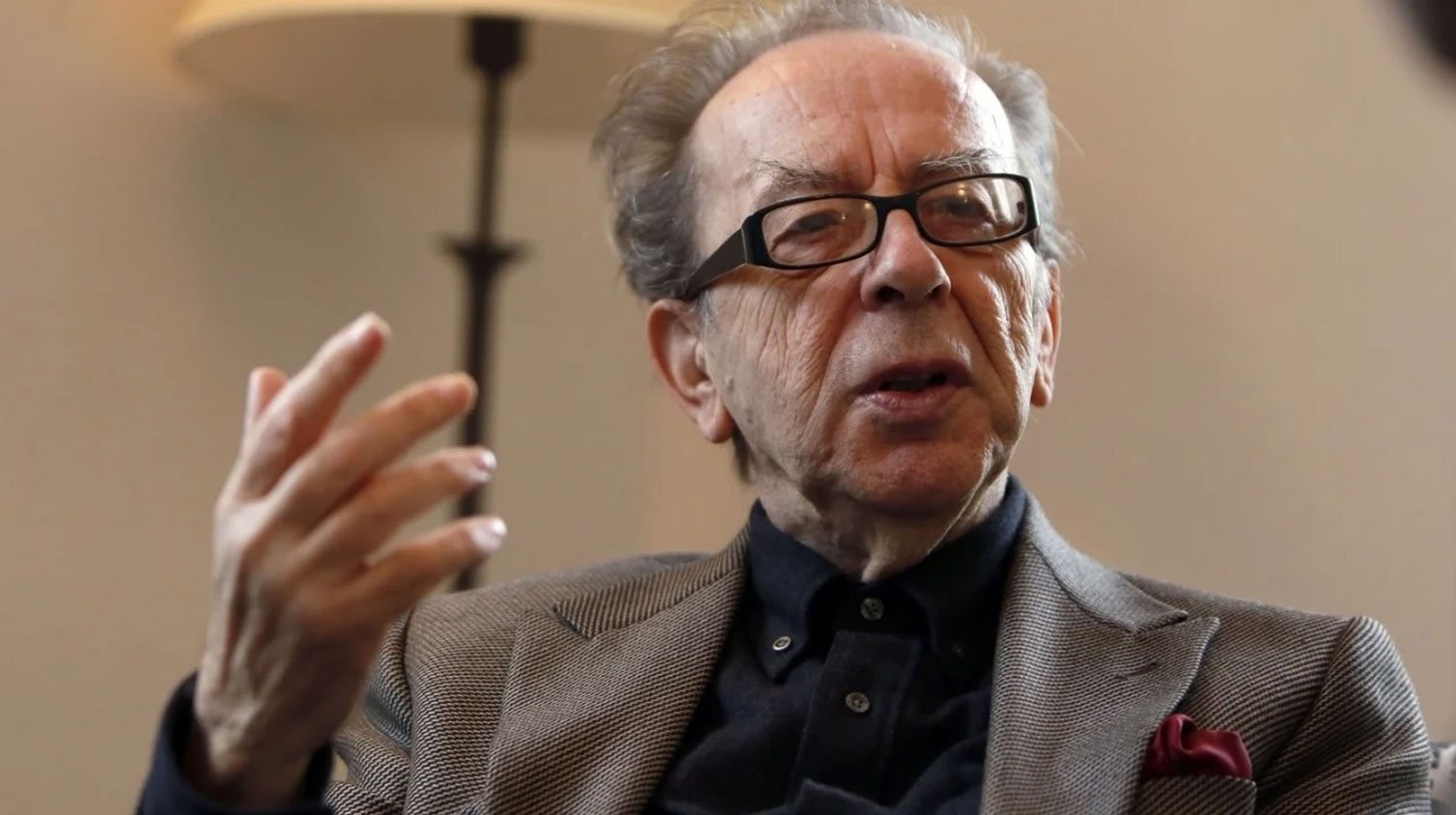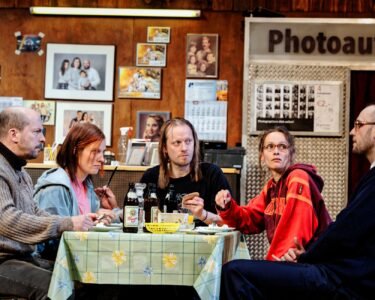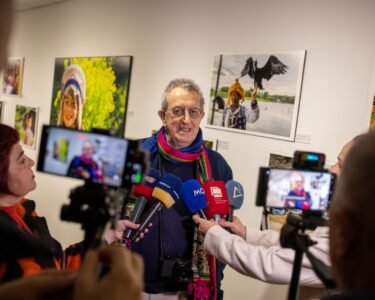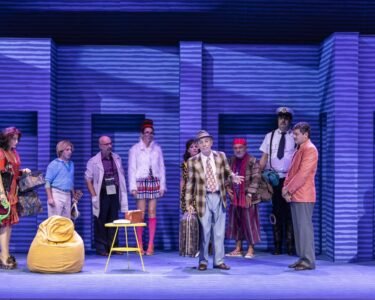"I am very optimistic. I am always waiting for a change, for a different Albania, and I believe that my nation will soon become better than what I can imagine. This is our moment, our chance. There are Albanians in leadership and in government in several Balkan countries, from Kosovo to North Macedonia. We carry with honor on our shoulders, in this sea, the oldest literary tradition in the world, the Latin, and Greek, the first cradle of literature. Between our shores and yours the European dream of culture began. Peoples may divide or unite, but we are already reunited, even if the politics are slower".
This is how Ismail Kadaré responded on November 10, 2023, to the journalist of the Print Letizia Tortello. There is a mixture of wisdom, positive worldview and healthy national pride in these words of the great Albanian writer who left without having received the Nobel Prize for Literature ,which he had richly deserved and for which he had been nominated several times. Other prizes had been awarded to him including the Mediterranean Prize for Foreigners, Herder Prize, Man Booker International Prize, Prince of Asturias Prize.
In the same interview, Kadarè recalled that Italy and Albania have been united for generations and that together they are part of the European dream. In an interview with the Voice of America broadcaster in November 2006, Kadare expressed his opensiero about Albania's membership in Europe this way:
"I think that the place of Albanians in Europe is natural and not the result of propaganda, strategy or invention. There are no other possible continents for Albanians than Europe. Some invoke the oriental elements that also characterize us. Now, this is the case in several other countries, such as Spain for example, which has been influenced by the Arab-Muslim world in several socio-cultural areas as a result of long cohabitation. No one has ever questioned Spain's belonging to Europe. The same goes for us, who are further from the East than certain other countries. Consequently, it is useless to raise so many questions about our location."
In the same interview Kadarè expressed his vision of a Europe of peoples and their identities this way:
I think that the Albanian identity in no way clashes with what is called the European identity. Europe is characterized from its origins by a union of nations and not by their annihilation. There is no abstract, general Europe. There is not a Europe as the communist doctrine recommended it: "communists first; Soviets, Lithuanians, Georgians or Armenians next," as they used to say in the nations of the Soviet Union. No, Europe is constituted as a Europe of nations, and not through the erasure of identities. Consequently, there is no reason to be concerned if the Albanian identity, as a fundamental identity in the Balkans, is as strong as the Greek or South Slavic identity. We are therefore going to be part of the European mosaic, made up of the contributions of each member country: the identities of Scandinavian countries in the north, others in the center, still others in the west and east. Perhaps Western countries have not always been generous to Albanians; I speak of the great difficulties they always face in traveling to the West. It would seem that Westerners disdain the poverty of Albanians a little. But whose fault is it? The difficulty in traveling to the West is not the exclusive preserve of Albanians; it is equally true for a number of countries. But in recent years things have gone too far for Albanians. I have spoken about this on several occasions, Albania must take steps to counter anti-Albanian racism. Each European nation has to pull the alarm bells the moment it sees signs of the different racisms, which are all unjust. I repeat, we must deal with the injustices that our people suffer, because this can also turn into racism or give rise to violence.
The European dream Kadarè always nurtured even during the dark years of Enver Hoxa's dictatorship against which he wrote a dozen novels
The Hoxa regime had initially tolerated the great poet and writer but then the ruthless and obtuse communist dictator could not resist the temptation of wanting to put Kadaré's critical mind under control.
His worldview has always been courageous, marked by a tenacious belief in freedom and democracy and a denunciation of totalitarianism. "Authentic literature and dictatorships are incompatible...the writer is the natural enemy of dictatorships".
Compared to both Orwell and Kafka Kadaré has always been driven by a positive worldview
His works have been translated into 45 languages. From the Treccani Encyclopedia we resume a long list:
Frymëzimet djaloshare ("Youthful Inspirations," 1954), Kështjella ("The Fortress," 1970; Ital. transl. The drums of rain, 1981; Nëntori i një kryeqyteti ("The November of a Capital City," 1975),; Muzgu i perëndive të stepës (1978; translated it. The twilight of the steppe gods, 1982; Ura me tri harqe (1978; translated it. The three-arch bridge, 2002),; Kush e solli Doruntinën? (1980; translated it. Who brought Doruntina back?, 1989),; Koncert në fund të dimrit ("Concert," 1988),; Dosja H.(1989; Ital. transl. The O file, 2022). Nga një dhjetor në tjetrin ("From December to December," 1991), Pyramid (1992; translated it. The pyramid, 1995); Tri këngë zie për Kosovën (Ital. transl. Three funeral songs for Kosovo, 2003) Lulet e ftohta te marsit(Ital. transl. Cold April flowers, 2005). Vajza and Agamemnonit ("The Daughter of Agamemnon"), Pasardhësi ("The Successor"), 2006 Identiteti europian i shqiptarëve - sprovë ("The European Identity of the Albanians"). Darka and gabuar (Ital. transl. One dinner invitation too many, 2012); Aksidenti (2008; transl. it. The incident, 2010); E penguara: requiem për Linda B. ("The impeded: requiem for Linda B., 2009); Darka and gabuar (2009; Ital. transl. One dinner invitation too many, 2012); Kukulla (2015; Ital. transl. The doll, 2017).In October, the work:"When a dictator calls“
Kadarè has always loved Italy, which has given him various awards. In 2018, receiving the Nonino Prize, Kadarè thus recounted the relationship between our two countries.
"When Albania was occupied by the Fascists, Mussolini flattered Tirana with an endless amount of praise. He went so far as to call Italy and Albania two countries in the vanguard of Europe. Then Mussolini passed, and the praise ended. Under Fascism people studied Dante and the Divine Comedy, and the strange thing is that Dante's glory remained intact even after the Soviet occupation. No, Dante was not undermined. And Albania, a victim of the harshest Stalinist regime in Europe, continued to love Dante even more than before. Literature is above any regime, that is its quality. The most wonderful. I am honored and moved to be in Italy."





